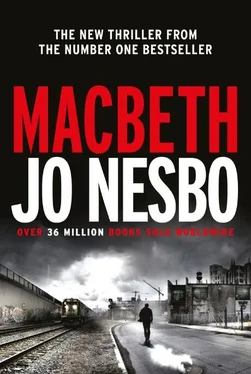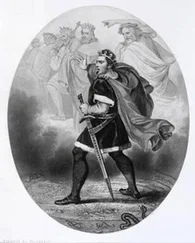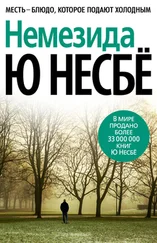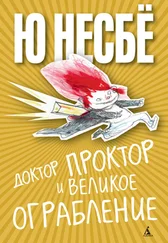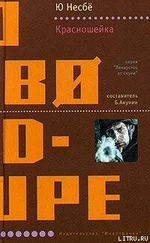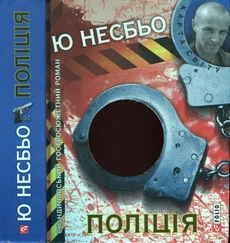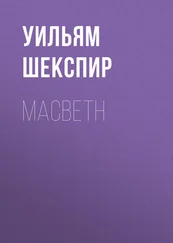Where was Hecate? It was already too late to take the suitcase to the harbour and heave it into the sea. The alternative was to dump it under a manhole cover in the street, but it was bright daylight, and the chances of Macbeth being recognised were high after the recent news programmes and press exposure.
Seven minutes.
Macbeth made up his mind. If Hecate wasn’t here in two minutes he would go. Leave the suitcase. Hope Hecate arrived before the bomb went off.
Five minutes. Four minutes.
Macbeth got up and went to the door. Listened.
Nothing.
Time to withdraw.
He gripped the door handle. Pulled. Pulled harder. Locked. He was locked in.
‘Do you mean you were cheated, sir?’ Lady was standing by the roulette table. She had been called because a customer was beginning to cause trouble. The man wasn’t completely sober, nor was he drunk though. Creased tweed jacket. She didn’t have to guess even: ex-Obelisk customer from bumpkin land.
‘Of course I was,’ the man said as Lady surveyed the room. It was just as full this evening. She would have to take on more staff, they needed at least two more in the bar. ‘The ball lands on fourteen three times in a row. What are the chances of that, eh?’
‘Exactly the same as they are for three, twenty-four and then sixteen,’ Lady said. ‘One in fifty thousand. Exactly the same as for any combination of numbers.’
‘But—’
‘Sir.’ Lady smiled, lightly touching his arm. ‘Has anyone ever told you that during a bombing raid you should hide in a bomb crater because lightning never strikes twice in the same place? That was when you were cheated. But now you’re in Inverness Casino, sir.’ She passed him a ticket. ‘Have a drink at the bar at my expense. Please consider the logic of what I’ve just said and we can talk afterwards, OK?’
The man leaned back and scrutinised her. Took the ticket and was gone.
‘Lady.’
She turned. Above her towered a tall broad-shouldered woman. Or man.
‘Mr Hand would like to speak to you.’ The man-woman nodded towards an elderly man standing a few metres away. He wore a white suit, had dyed dark hair and was leaning on a gilded walking stick while examining the chandelier above him with interest.
‘If this could wait for a couple of minutes...’ Lady smiled.
‘He also has a nickname. Starting with H.’
Lady stopped.
‘He prefers Hand.’ The man-woman smiled.
Lady walked over to the old man.
‘Baccarat crystal or Bohemian?’ he asked without taking his eyes off the chandelier.
‘Bohemian,’ she said. ‘It is, as you can see, a slightly smaller copy of the chandelier in Dolmabahçe Palace in Istanbul.’
‘Unfortunately I’ve never been there, ma’am, but I was once in a chapel in a small place in Czechoslovakia. After the Black Death they had so many skeletons lying around there wasn’t enough room for them. So they employed this one-eyed monk to tidy up and stack the remains. But instead of doing that he used them to decorate the chapel. They have an attractive chandelier there made out of skulls and human bones. Some might think that shows little respect to the dead; I would maintain the opposite.’ The old man shifted his gaze from the chandelier to her. ‘What greater gift can mankind receive than the touch of immortality inherent in retaining a function even after death, ma’am? Like becoming a coral reef. A chandelier. Or a symbol and guiding star, a chief commissioner who dies so prematurely that people still have this notion of a good person, a selfless leader, so blessedly prematurely that there was never time to unmask him as another megalomaniacal corrupt king. I’m of the opinion that we need such deaths, ma’am. I hope the one-eyed monk received the gratitude he deserved.’
Lady swallowed. Usually she could see something in a person’s eyes which she could interpret, understand and then use. But behind this man’s eyes she saw nothing — it was like looking into the eyes of a blind man. ‘How may I be of assistance, Mr Hand?’
‘As you know, I should be at a meeting with your husband. He’s sitting in a hotel suite waiting to kill me.’
Lady felt her windpipe contract and knew that if she spoke now her voice would be high and squeaky. So she refrained.
‘But as I can’t see that I’d be serving any good purpose dead, I thought instead I’d talk sense with the sensible one of you two.’
Lady looked at him. He nodded and smiled a sad, gentle smile, like a wise grandfather. Like someone who understood her and told her that excuses were unnecessary and pointless anyway.
‘I see,’ Lady said with a hefty cough. ‘I think I need a drink. What can I offer you?’
‘Well, if your bartender knows how to make a dirty martini...?’
‘Come with me.’
They went to the bar, where people were queueing. Lady ploughed her way to behind the bar counter, grabbed two martini glasses, poured from the gin bottle and then the Martini bottle, mixed the cocktails on the worktop beneath the counter. Less than a minute later she was back and handing the old man his glass. ‘I hope it’s dirty enough.’
He tasted. ‘Definitely. But unless I’m mistaken it has an extra ingredient.’
‘Two. It’s my own recipe. This way?’
‘And what are the ingredients?’
‘That’s a business secret of course, but let me put it this way: I think drinks should have a local touch.’ Lady led the old man and the tall man-woman into the empty room behind the restaurant.
‘Naturally, a man in my position has some sympathy with you wanting to protect your business secrets,’ Hecate said, waiting for the man-woman to pull out a chair for him. ‘So please excuse me if I’ve revealed your intentions to take over my town. I respect ambition, but I have other plans.’
Lady sipped her martini. ‘Are you going to kill my husband?’
Hecate didn’t answer.
She repeated the question.
Macbeth stared at the door and felt his mouth go dry. Locked in. He imagined he could hear the bomb ticking behind him now. There was no other way out — exits were one of the things he always checked when he examined drawings of buildings. Outside the windows the smooth wall dropped twenty floors to the tarmac.
Locked in. Trapped. Hecate’s trap. His own trap.
He breathed through his mouth and tried to shut out the mounting panic.
His eyes swept the room. There was nowhere to hide, the bomb was too powerful. His eyes fell on the door again. On the thumb turn lock under the handle.
The thumb turn. He let his breath out in a long, relieved hiss. Shit, what was wrong with him? He laughed. A hotel door is supposed to lock when it closes. He lived in a hotel himself, for Christ’s sake. All you had to do was turn the lock to open the door.
He reached out a hand. Hesitated. Why was something telling him it couldn’t be so easy? That it never was, that where he was it would be impossible to get out, and that he was doomed to blow himself sky-high?
He could feel his fingers slippery with sweat as they closed round the lock. Turned.
The lock turned.
He pressed the handle.
Pushed open the door.
Went out. Rushed down the stairs and along the corridor, cursing quietly.
Stood in front of the lift and pressed the button.
Saw on the wall display it was on its way up from the ground floor.
Looked at his watch. Two minutes and forty seconds.
The lift was approaching. Could he hear something? A clinking, voices? Were there people in the lift? What if Hecate was there? There was no time to go back to the suite and talk now.
Macbeth ran. According to the drawings the fire escape was round the corner to the left.
It was.
Читать дальше
